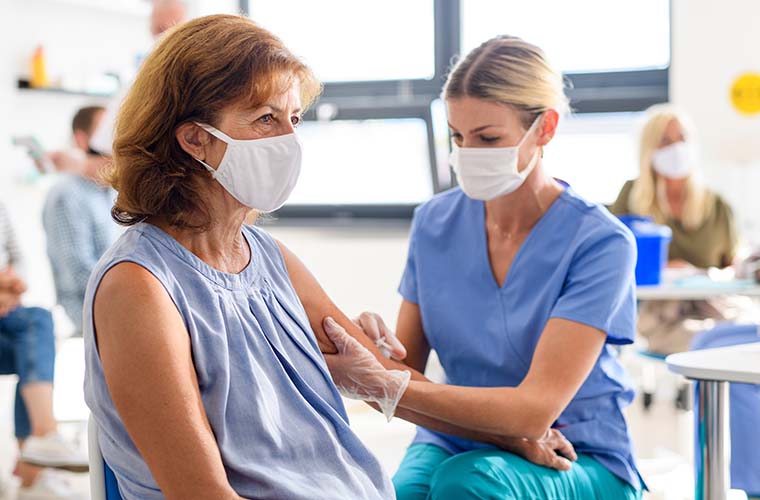Getting the COVID Vaccine? Here is What You Can Expect

Editor's Note: Story includes information on what is currently known about the effects of COVID-19 vaccines.
As COVID-19 vaccines continue to be distributed across the country, many people have questions about side effects and what they can expect after vaccinations.
To help provide answers, BayCare offers helpful tips and signs to consider after patients receive the COVID vaccine.
Common Side Effects
After COVID-19 vaccinations, people may experience some common side effects that typically go away after a few days. This is a normal sign that your body is building protection. The most common side effects from the COVID-19 vaccine may include redness or swelling where the shot was given, fever, fatigue, headache, muscle pain, chills and joint pain. Side effects appear to be more common with the second dose than the first dose of the COVID-19 vaccine.
What to Do When Side Effects Occur
If patients experience local symptoms like pain, swelling, or redness at the injection site, the Centers for Disease Control and Prevention (CDC) recommends applying a clean, cool and wet washcloth over the area where the vaccine was given. Patients can talk to their physician about taking over-the-counter medications to relief pain or discomfort. Health care providers also recommend exercising the arm frequently. If patients experience fever, they’re encouraged to frequently drink fluids, dress lightly and talk to their health care provider about taking over-the counter medication for fever reduction.
When to Contact a Physician
Side effects are common when receiving the COVID-19 vaccine. However, patients can contact a physician if redness or pain where you got the shot increases after 24 hours or side effects are worrisome and do not seem to go away after a few days. If you think you may have a severe allergic reaction after getting the vaccine, immediately call 911 or contact your physician. Patients can also report any side effects using a tracking tools called v-safe developed by CDC. Through this tool, patients can also receive reminders for a second dose.
When to Schedule a Second Dose
Current COVID-19 vaccines are given in two doses 21 days (Pfizer) or 28 days (Moderna) apart. The CDC recommends that doses are given in these recommended intervals but no earlier than 4 days before the due date or as soon as possible thereafter. A second dose is required, and patients are encouraged to make an appointment with these dosing intervals in mind. For BayCare COVID vaccine updates, visit BayCare.org/Coronavirus/Vaccines.
Safety Precautions
People need to continue to practice safety measures even after receiving the COVID vaccine. While some people are getting vaccinated, they can still carry the virus and infect others who aren’t vaccinated. It’s important to continue to be vigilant to help slow the spread of the virus. First and foremost, wear a mask when social distancing is hard to maintain. Practice social distancing by staying at least six feet from those outside your household. Frequently wash your hands and try not to touch your nose and mouth. The more frequently you wash your hands, the less likely the virus or other contagions will be able to infect you or others.
For information on COVID-19 including vaccines, visit BayCare.org/Coronavirus.
